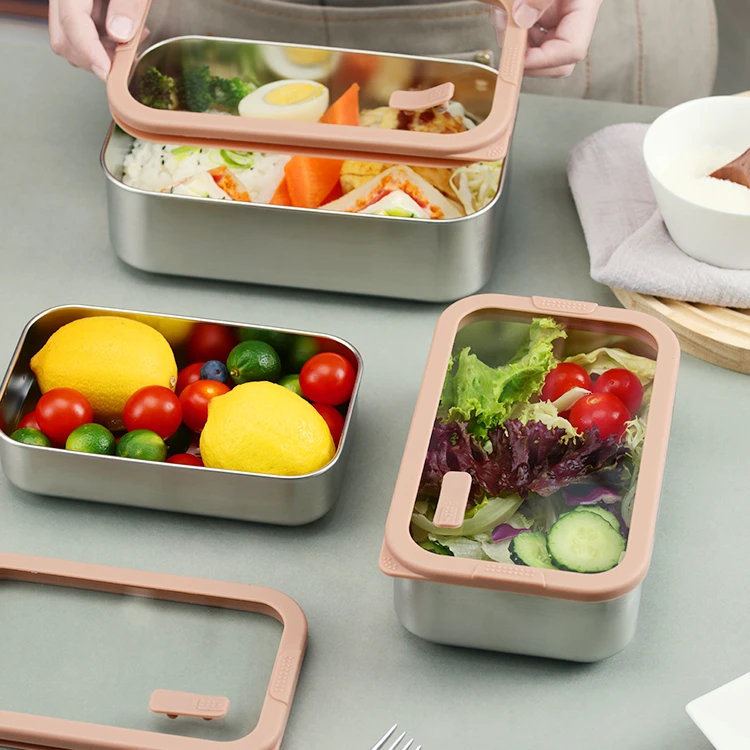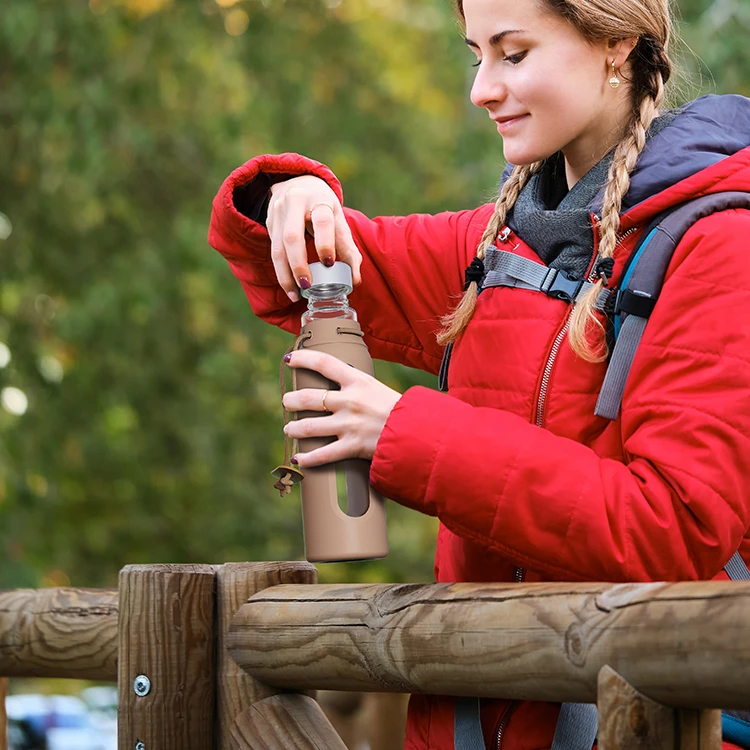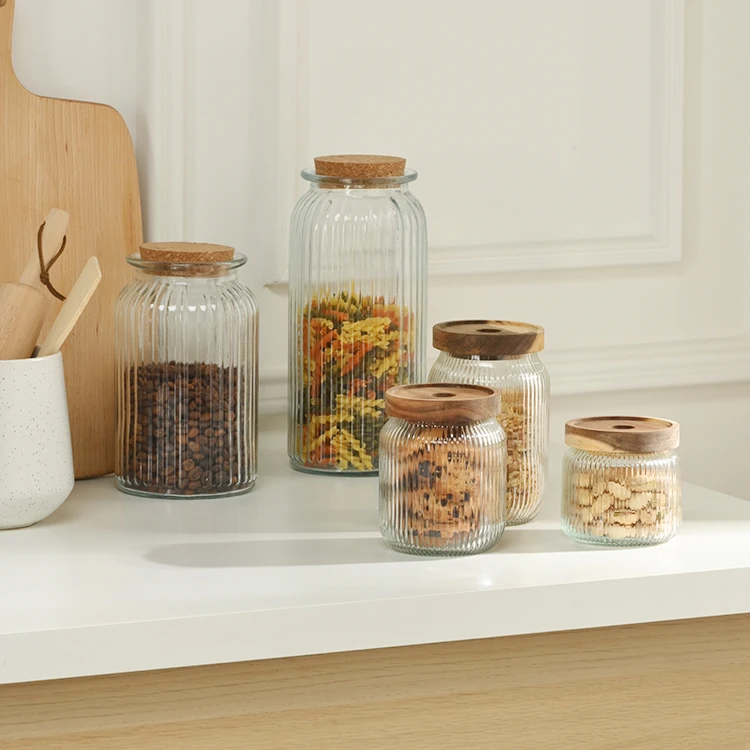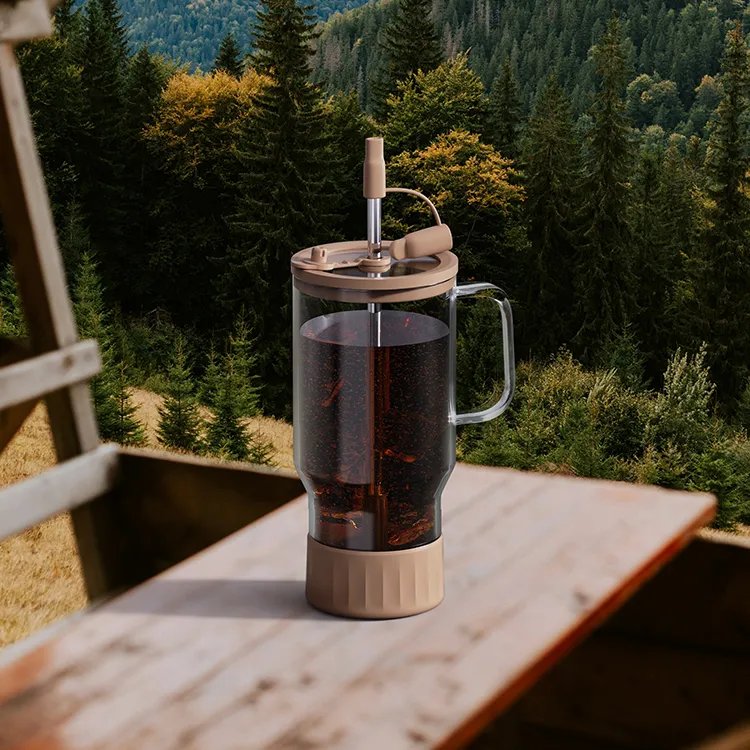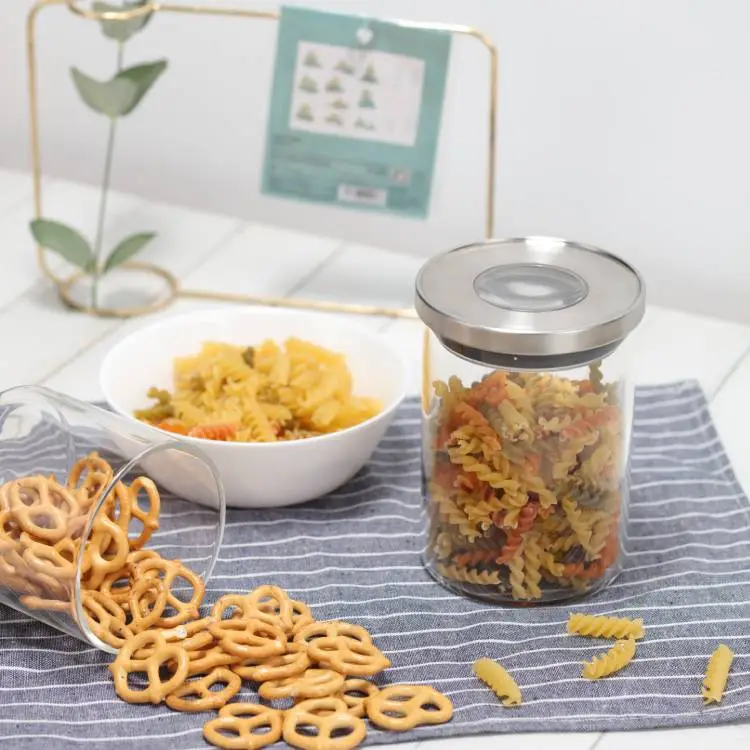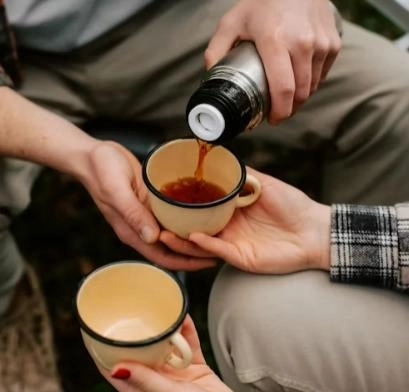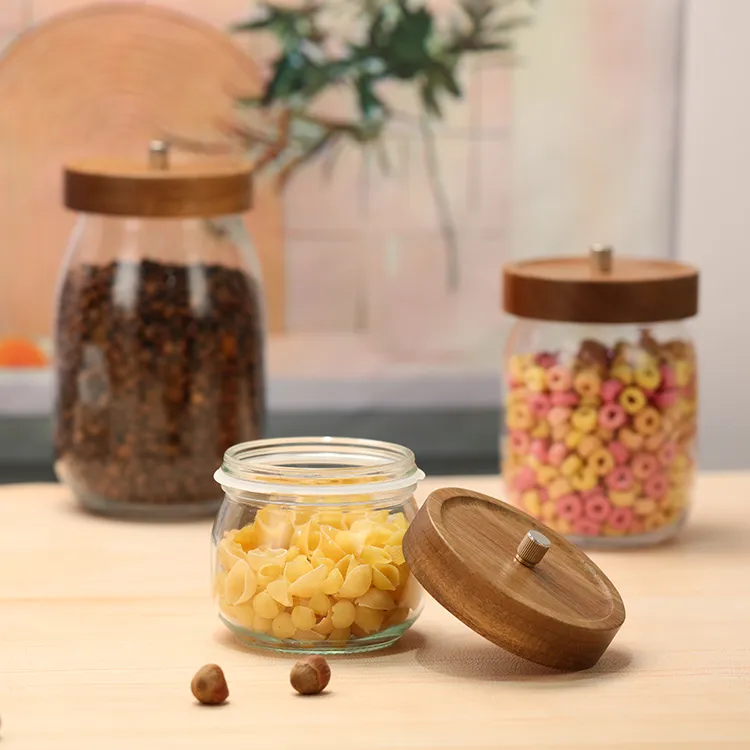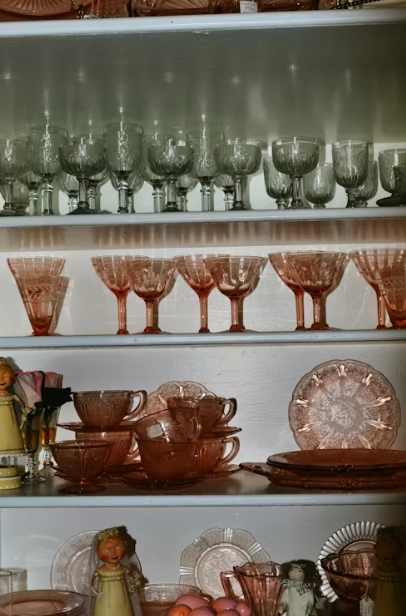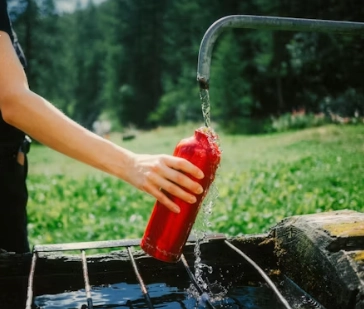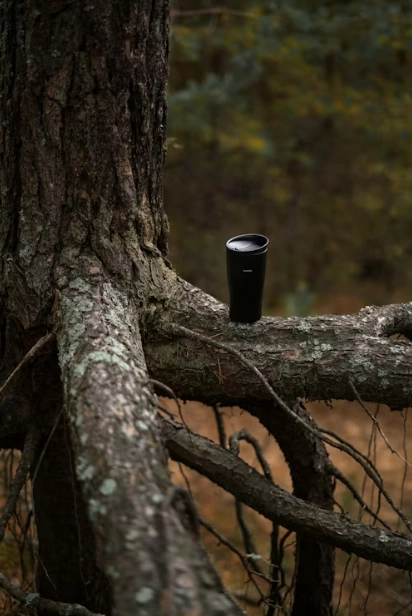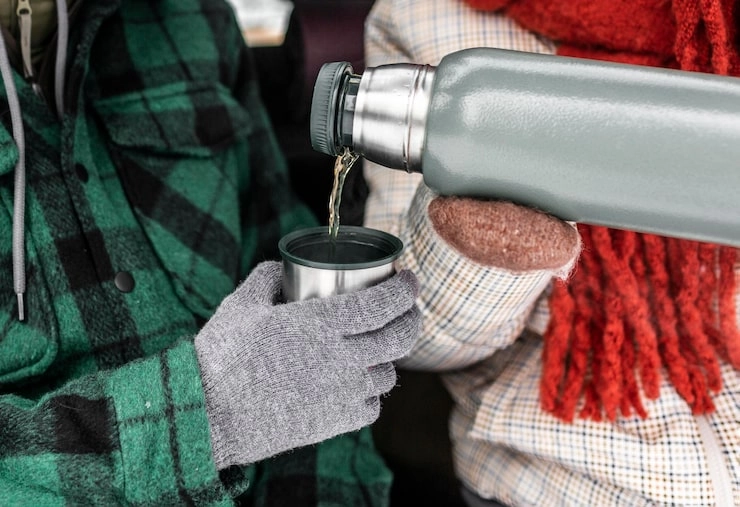
Outdoor activities like hiking, biking, skiing, and camping require solid hydration options that handle all sorts of weather. Keeping your drink’s temperature steady isn’t just nice—it’s key for staying hydrated right, which boosts your energy and health on the trail. Yet, changing outdoor temps often test regular water holders pretty hard.
Insulated water bottles step up as a smarter pick. They tackle outside changes head-on, holding liquid temps way longer than plain ones. Modern tricks in insulation turn basic stainless steel bottles into top-notch gear for drinks. These smart setups use clever stuff like vacuum insulation and double-wall builds to block heat swaps. By cutting down on heat moves through touching, air flow, and light waves, such bottles make things easier and better for folks in wild spots.
Key Insulation Technologies Used in Water Bottles
Insulated water bottles count on a few main tricks to shine in keeping heat in check.
Double-wall builds form the base. They use two layers—often stainless steel—with space between. This setup blocks heat from jumping in or out fast. It cuts touching heat and air currents well, the big ways warmth shifts around.
Vacuum insulation builds on that idea. It sucks air out from the gap, leaving empty space. No air means no quick heat pass by touch or flow. That’s why vacuum insulation holds drink temps for hours on end.
Some bottles add copper layers or shiny coats inside. These bounce back heat rays into the drink. They fight light-based warmth loss without making the bottle bigger or heavier. Besides, they boost the whole system’s work quietly.
Materials Used in Insulated Water Bottles
How well insulation works ties right to the stuff it’s made from.
Stainless steel rules as the go-to pick—and it earns that spot. It’s tough, won’t rust, and stays strong in heat or cold. Plus, it skips adding weird tastes or smells, perfect for trail time. Brands like SinoGlass build on these safe, solid materials for gear that lasts and works right.
Lids and straws often use BPA-free plastics. These parts pick safety, quick cleans, and steady shapes under temp swings. What’s more, they seal tight so nothing leaks out—or in.
Factors Affecting Temperature Retention During Outdoor Use
Even top insulation faces outside pushes that tweak how long temps last.
Outside air temp matters a lot. Chilly spots pull warmth from hot drinks quicker; scorching days push heat into cold ones. Insulated bottles fight this swap, but wild extremes still nudge things along slowly.
How often you twist open the lid counts too. Each pop lets air rush in and mess up the inside balance. Thus, great insulation gets tested hard with too many sips.
Start with super hot or icy drinks for better holds. Full fills beat half ones—less air inside means fewer spots for heat to sneak around. So, smart starts pay off big.
Performance Comparison: Hot vs Cold Retention Capabilities
Insulated bottles handle hot and cold jobs differently, based on the scene.
In freezing spots like winter hikes or peaks, warm sips keep you going. Vacuum setups in quality bottles hold tea or coffee toasty for 12 hours, even below zero.
Hot days test cold keeps. These bottles stop ice from melting fast under sun blasts. Many keep drinks frosty over 24 hours, thanks to vacuum layers and shiny insides. First of all, that’s a game-changer for long runs.
Design Features That Enhance Thermal Efficiency
Smart shapes beyond base tech push temp holds even further.
Tight seals on lids block sneaky heat trades up top. Screw caps with rubber rings lock in air-free fits that guard the inside world.
Straw builds beat big-mouth opens for quick drinks. You sip without full twists, cutting air swaps that cool or warm things fast. This keeps the chill or heat locked down better.
Take the SinoGlass Dual-Portable Thermal Bottle as a standout. Its top mixes two drink ways: a tiny spout for hot gulps on one end, and a hidden straw for cold pulls on the other. This two-way setup fits drinks and spots perfectly, upping ease a ton.
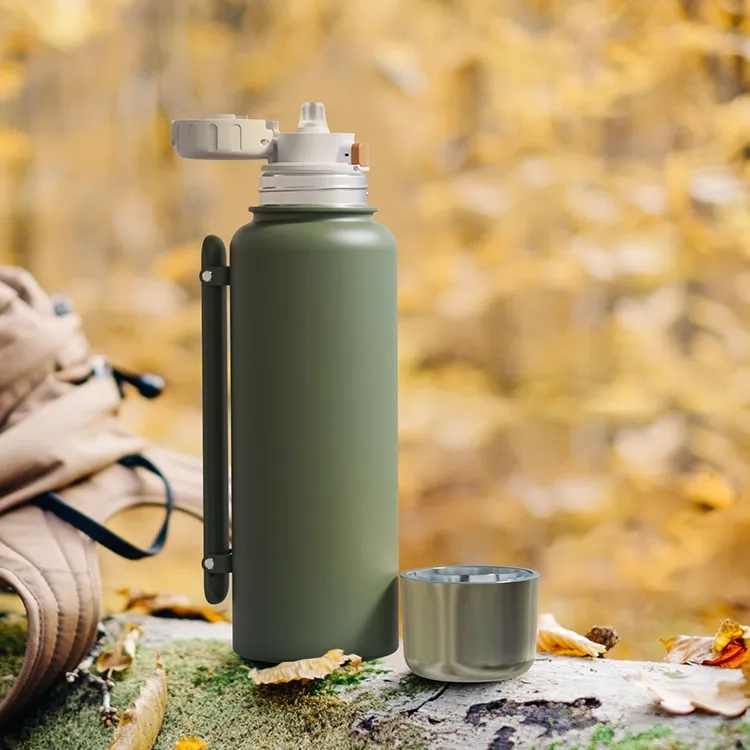
For straw fans, the SinoGlass Insulated Bottle with Folding Straw shines too. Tuck the bendy straw away under a no-leak top when done—it stays clean and lets one-hand grabs for bike spins or hill climbs.
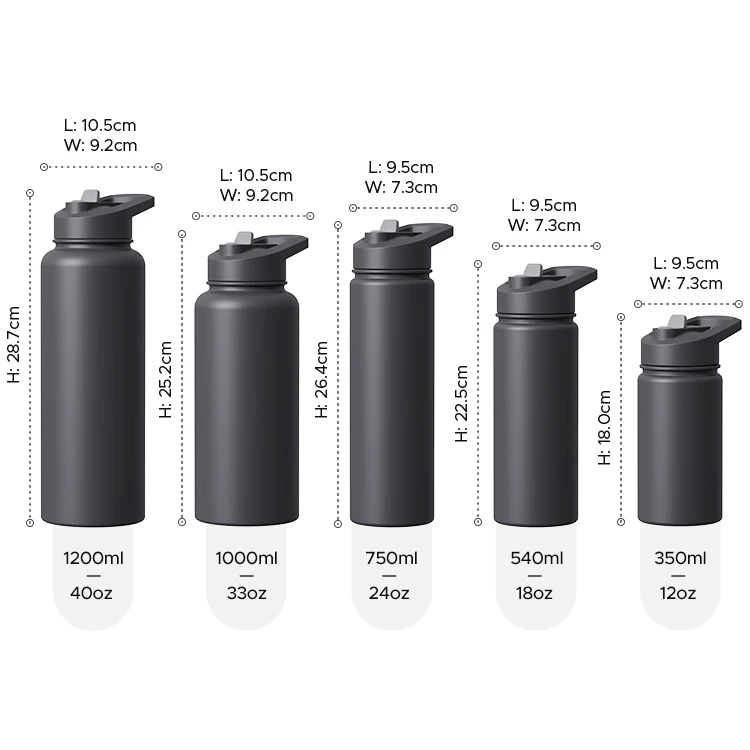
Practical Benefits of Using an Insulated Water Bottle Outdoors
Picking an insulated bottle pays off in real trail ways.
It delivers steady sips no matter the sky—blazing sun or frosty paths. Your stainless steel buddy keeps temps just right, so hydration sticks through any shift.
Ditch throw-away plastics for these keepers. They last ages, cutting cash and trash piles over time. Thus, you win on green and wallet fronts.
SinoGlass: Integrating Insulation Technology with Innovative Design
As those picks show, SinoGlass blends top insulation with user-smart shapes. We push past plain heat holds to fix real outdoor wants.
From the Dual-Portable Thermal Bottle’s drink picks to the Insulated Bottle with Folding Straw’s clean grabs, our lineup lifts your adventures. We stand as your go-to drink sidekick anywhere. Our drive for solid builds and fresh ideas means every piece nails use, strength, and carry ease.
Summary of Key Insights
Insulation tech drives how well any stainless steel water bottle works outside. Pairing double-wall stainless builds with vacuum insulation gives the best temp guards. Add-ons like copper insides, no-leak tops, and built-in sip tools lift it more by fitting user spots in wild use. Pick based on weather, moves, and shape perks for top ease and punch.
FAQs
Q1: How long can an insulated stainless steel water bottle keep drinks hot or cold?
A: Depending on insulation quality and external conditions, many vacuum-insulated stainless steel water bottles can keep beverages hot for 8–12 hours and cold for up to 24 hours or more.
Q2: Is stainless steel safe for storing all types of beverages?
A: Yes. Food-grade stainless steel does not react with most beverages such as coffee, tea, juice, or water. It is safe for daily use and does not retain odors or alter taste.
Q3: Do larger bottles retain temperature better than smaller ones?
A: Generally, yes. Larger volumes have more thermal mass, which helps maintain beverage temperature longer compared to smaller containers with similar insulation features.


